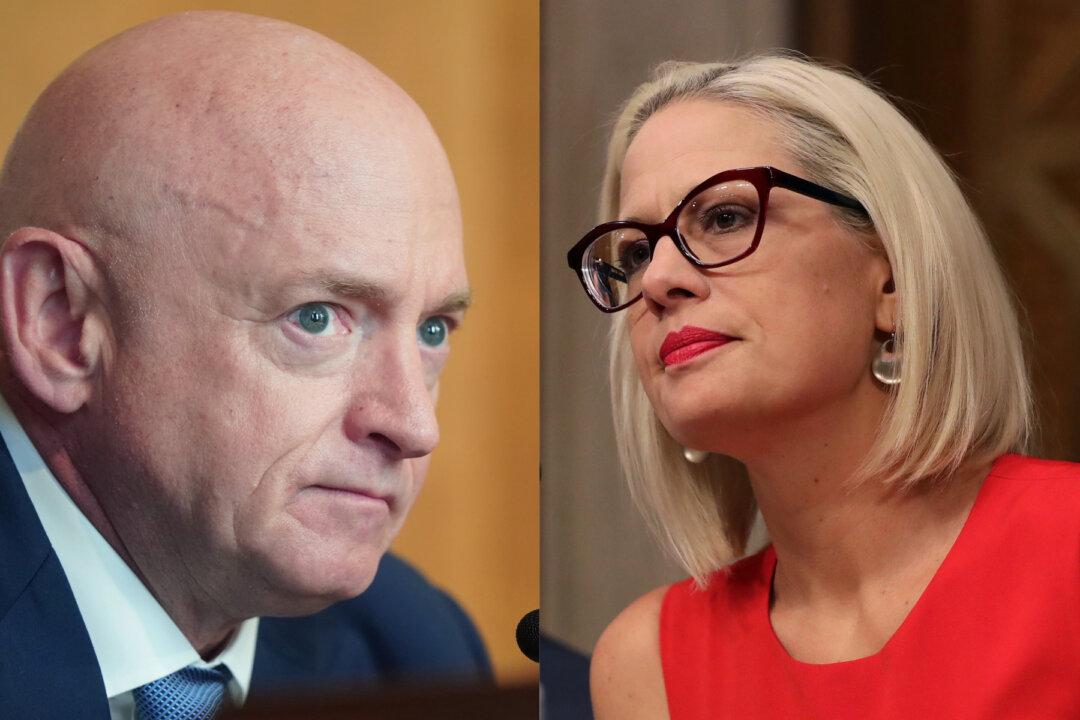News Analysis
While Sen. Kyrsten Sinema (D-Ariz.) is not up for reelection this year, her colleague Sen. Mark Kelly (D-Ariz.) is. The contrast between the two is stark, and Arizona voters will be left to decide if Kelly’s left-leaning progressive policies are too radical for the red-leaning swing state when compared to Sinema’s centrist policies.





